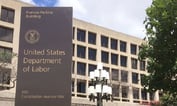Now that the Labor Department’s fiduciary rule is dead, advisors’ fiduciary compliance will revert back to the 1975 Employee Retirement Income Security Act’s five-part test — but that doesn’t mean it’s business as usual, according to Brad Campbell, former head of Labor’s Employee Benefits Security Administration.
“Just because we’re going back to the old rule, so to speak, doesn’t mean we’re going back to the old interpretations that much of the industry has fallen into,” Campbell, now partner at Drinker Biddle & Reath in Washington, said during the law firm’s recent Inside the Beltway webcast.
(Related: To the Fiduciaries Go the Spoils)
“Advisors to plans are going to remain fiduciaries even though we’re reverting to the old test,” Campbell said, and that includes registered representatives and insurance agents who advise retirement plans.
However, “that’s not the case for rollovers. For rollovers, we really are going back to the pre-DOL [fiduciary] rule situation, which is that most rollover advice is not going to be fiduciary advice, primarily because it’s provided on a one-time basis.”
Fred Reish, partner in Drinker Biddle’s Los Angeles office, who also participated in the webcast, told ThinkAdvisor on Friday that “many advisors to plans would be fiduciaries” even though DOL’s fiduciary rule has been vacated.
That’s for two reasons, Reish said. “The first is that the old fiduciary definition, which applies again after the 5th Circuit decision, is ‘functional,’ [which means] it applies based on the facts that actually happen, and not on the type of advisor.”
Second, Reish said, “under that functional definition, most retirement plan advisors satisfy the definition and therefore are fiduciaries. We believe that the DOL will enforce that more actively than in the past.”
Over the last 20 or 30 years, Campbell stated during the webcast, the industry has “fallen into using a shorthand that probably was not correct, which was that if you were an advisor on the sales side, if you were a registered rep or an insurance agent or somebody in that capacity, typically I think the industry viewed it as this person was not going to be an ERISA fiduciary even when they were advising 401(k) plans on a regular basis on their menu.”
(Related: Senate Dems Call SEC Reg BI ‘Confusing,’ Prod FINRA for Answers)









 July 27, 2018 at 01:37 PM
July 27, 2018 at 01:37 PM











